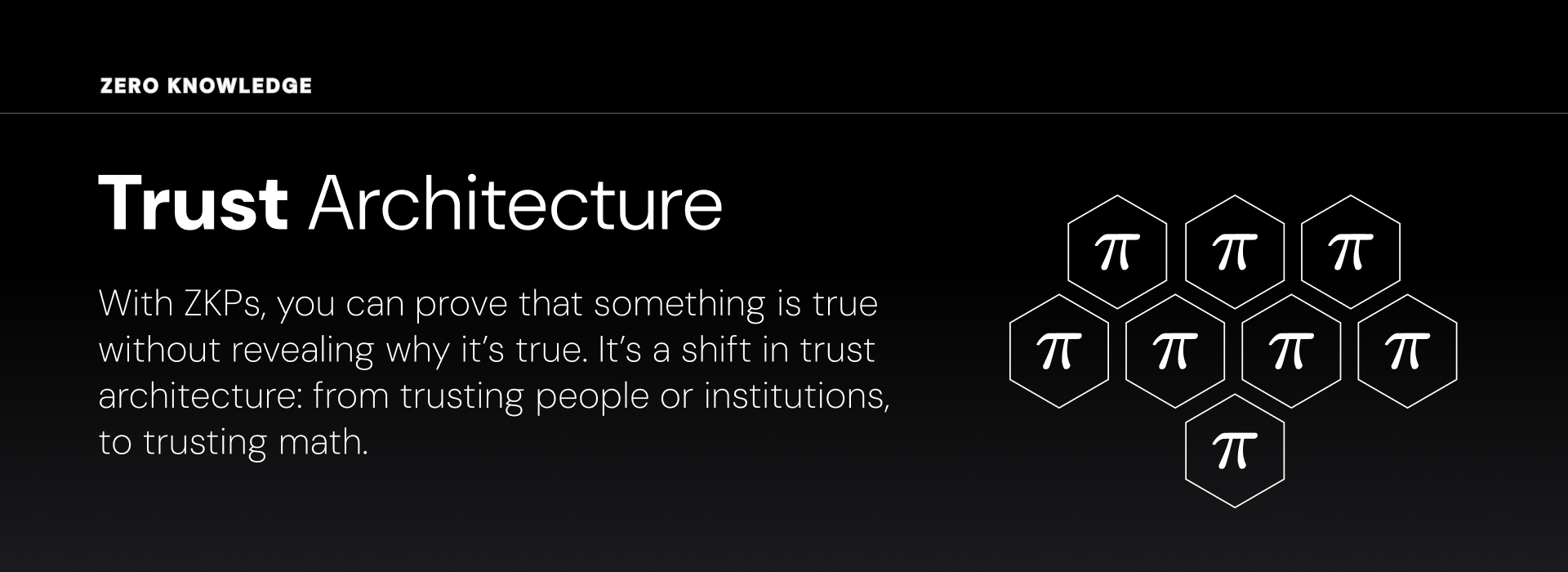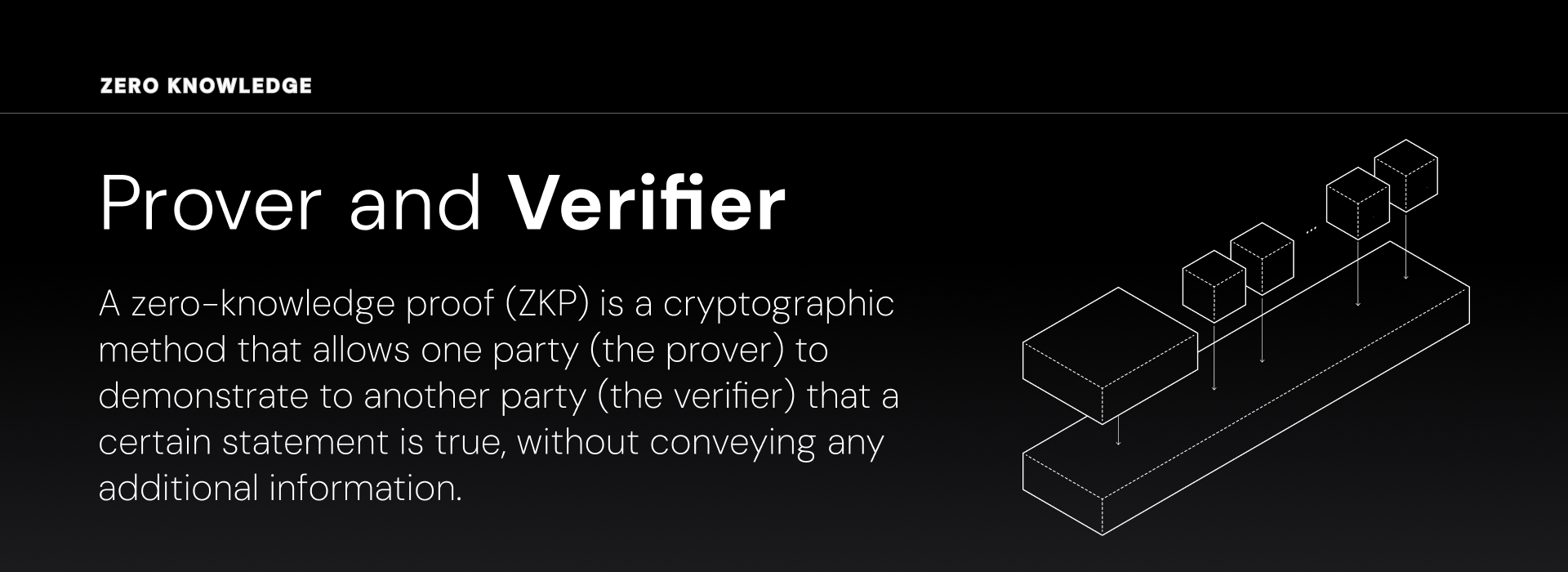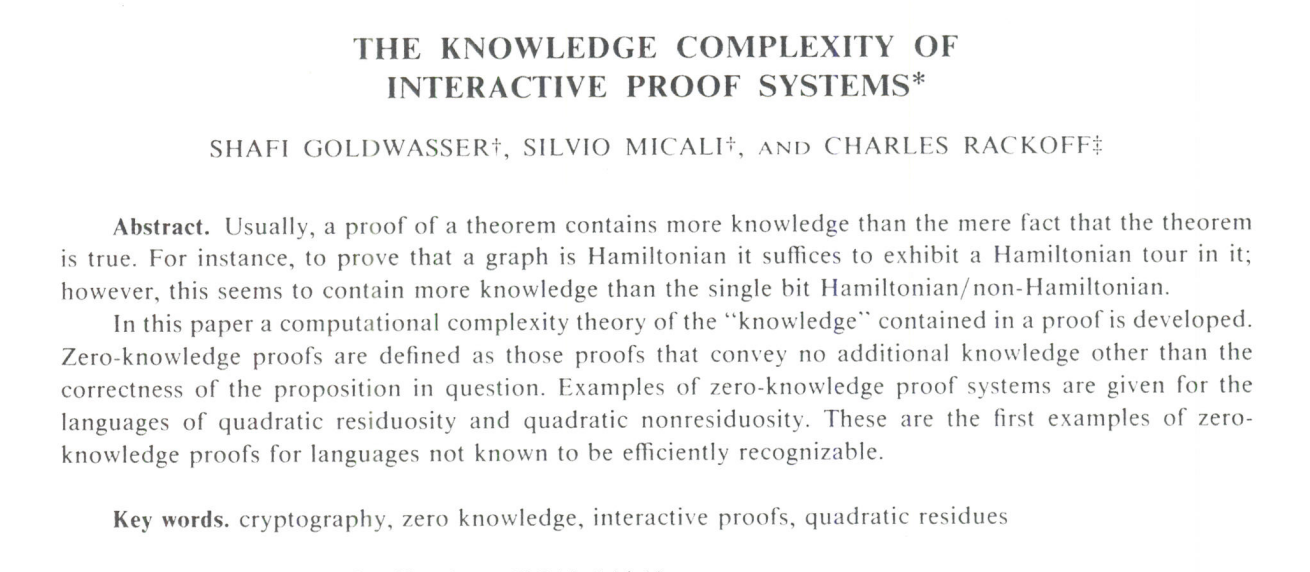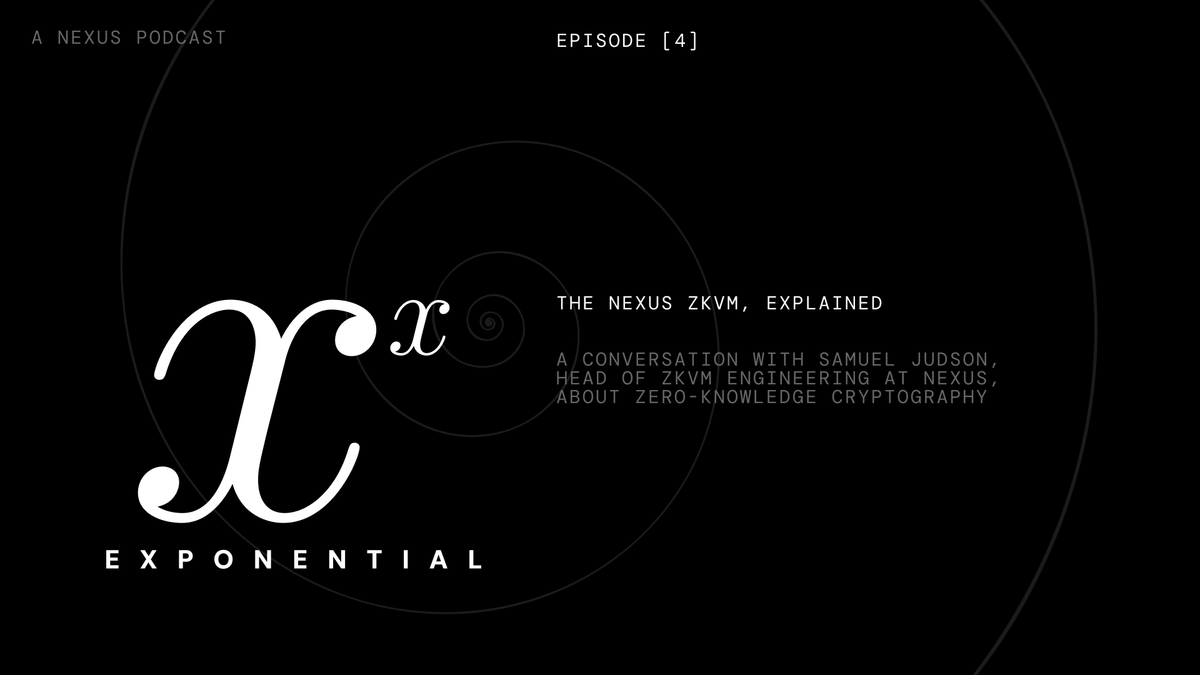Nexus Community Report: Welcoming USDX
Over the past weeks, Nexus has continued to expand across infrastructure partnerships, global industry engagement, educational initiatives, and community-led creativity.

In today’s digital systems, we face a growing tension: We need to prove things to one another — identity, correctness, compliance, truth — yet we don’t want to reveal confidential or private information in the process.
Traditional methods force us to over-share: a password to log in, a date of birth to prove eligibility, sensitive financial data to prove solvency. This creates risk, complexity, and a fragile dependence on trusted intermediaries.
Zero-knowledge proofs (ZKPs) offer a radical alternative. With ZKPs, you can prove that something is true without revealing why it’s true. It’s a shift in trust architecture: from trusting people or institutions, to trusting math.
At Nexus, we believe this shift is fundamental. ZKPs aren’t just cryptographic curiosities — they’re a new computing primitive. They enable a Verifiable Internet, where systems can prove their claims about the data they produce. Our zkVM and execution stack are built on this idea: Verifiability isn’t an afterthought — it’s the operating principle.

A zero-knowledge proof (ZKP) is a cryptographic method that allows one party (the prover) to demonstrate to another party (the verifier) that a certain statement is true, without conveying any additional information.
This sounds counterintuitive, but it’s powerful. For example, you can prove you know a password without revealing the password. Or show that you’re eligible to vote without revealing your identity. Or that a transaction is valid without revealing its amount. The verifier becomes convinced of the truth of the claim — but gains no knowledge beyond that.
This property is essential in systems where data privacy and integrity must coexist. Modern ZKP systems produce succinct proofs that can be as small as a few hundred bytes and can be checked in milliseconds. They make it possible to move from “trust me” to “verify me,” at almost no cost to the verifier and without sacrificing confidentiality.

The foundations of zero-knowledge proofs were laid in 1985 by Shafi Goldwasser, Silvio Micali, and Charles Rackoff, who introduced the idea of interactive proofs and knowledge complexity.
Their work demonstrated that it was possible to prove a mathematical claim without revealing the witness (i.e., the evidence behind the claim).

At a high level, a ZKP involves a prover generating a cryptographic proof that they possess certain knowledge, and a verifier checking that proof without learning anything beyond its correctness.
Modern zero-knowledge systems go under many names such as SNARKs and STARKs and rely on a suite of deep cryptographic techniques — e.g., elliptic curve pairings, polynomial commitment schemes, and low-degree testing — combined with clever encoding of computations into constraint systems.
These mechanisms enforce three key guarantees:
These properties underpin the shift from trusting authorities to trusting computation itself.

Listen to this episode of Exponential to learn more about how we use ZKPs to build the zkVM.
Despite their complexity, ZKPs are not just research artifacts — they’re running in production today.
In privacy-focused cryptocurrencies like Zcash, ZKPs enable shielded transactions where values and addresses are hidden but still verifiable.
In decentralized identity systems like Polygon ID, users can prove things about themselves (age and citizenship) without revealing sensitive documents. In voting systems like Semaphore, ZKPs allow users to cast votes anonymously while preserving verifiability and preventing double voting.
Platforms like zkSync use zk-rollups to bundle and verify thousands of transactions off-chain, dramatically reducing cost and congestion while preserving Ethereum’s security guarantees.
These examples hint at a larger truth: ZKPs aren’t just about privacy—they’re about selective disclosure. The ability to prove just enough, and nothing more.
A zkVM (zero-knowledge virtual machine) is an execution environment that outputs a cryptographic proof of its own execution. Instead of saying “this transaction is valid,” a zkVM can say “this entire program ran correctly on this input, and here’s a proof.”
At Nexus, the zkVM is at the core of our architecture. It allows us to define verifiable compute protocols that run anywhere, prove anything, and disclose only what’s necessary. It’s how we move from systems that are secure by policy to systems that are secure by proof.
Of course, there are tradeoffs. Even with modern zkVMs it is very expensive to compute the proofs when you have a large computation.
Yet the ecosystem is maturing quickly. New languages like Noir, Cairo, and Leo are making ZKP programming more accessible. Recursive proving and hardware acceleration are improving performance. And open-source proving systems like Halo2, Plonky3, S-two are pushing proof generation into real-time territory.
Meanwhile, research into zkML, zero-knowledge machine learning, is accelerating — enabling AI outputs that can be verified to be correctly computed according to the model.
Our mission is to build the Verifiable Internet — a world where trustworthiness comes not from brand, legal enforcement, or blind faith, but from proof. That requires new primitives, and the zkVM is one of the most important among them. It’s what allows arbitrary execution to be proven, e.g. AI decisions can be audited without compromising data or privacy.
We’re investing in zero-knowledge because we believe the next internet won’t just be programmable — it will be provable.
Zero-knowledge proofs may have started as an academic curiosity. But today, they’re quietly transforming how we build trust online. They offer a path beyond surveillance, beyond blind trust, and beyond the limitations of legacy infrastructure.